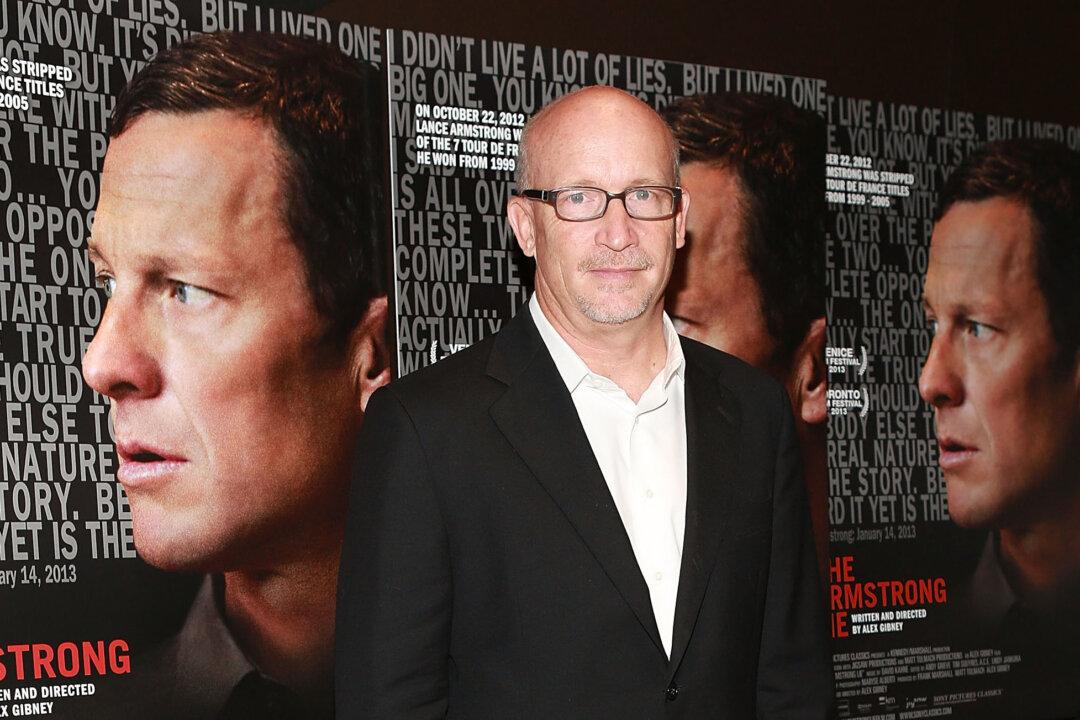When Alex Gibney set out to make a movie about cyclist Lance Armstrong’s 2009 Tour de France comeback, the documentarian admits he bought into the hype: The man who'd cheated death was coming back to reign supreme—and clean.
“All of us fans wanted to believe,” said Gibney. “You want to root for people. That is what sports are all about.”
In fact, it was such a positive film Armstrong himself was a financial participant in the project.
Then in 2011, things changed. The “feel-good movie,” as Gibney called the original version of his documentary, was nearly finished when Armstrong’s ex-teammates, Tyler Hamilton and Floyd Landis, began going public about Armstrong’s doping.
That same year, Armstrong faced a U.S. government investigation into doping allegations. Then in 2012, a federal Anti-Doping Agency report alleged Armstrong and his U.S. Postal Service-sponsored team used performance-enhancing drugs.
It had become all too clear—Gibney needed to change the fabric of his film. What had been titled “The Road Back” became “The Armstrong Lie.”
“It was a lie that was hiding in plain sight,” said Gibney. “But you don’t want to doubt.”
Suspicions about Armstrong’s drug use actually began to surface in 2005 after former Armstrong teammate Frankie Andreu and his wife, Betsy, testified in a lawsuit about a drug confession they heard Armstrong make while hospitalized in 1996 during his bought with cancer. (Armstrong later did his best to ostracize Frankie Andreu from the cycling world).
“Most of the facts had been revealed a long time ago,” said Gibney in a recent interview. “The question was: if they had been revealed, then how did Lance maintain that they weren’t true? That is what the film is about.”
In an interview with Oprah Winfrey in January of this year, Armstrong finally admitted to using performance-enhancing drugs to win the Tour de France seven times, titles that have since been revoked. Gibney was there as the interview was shot and insisted that Armstrong come clean in front of his camera, too.
“A long interview was hard to get in the wake of Oprah because that interview hadn’t done for him what he wanted it to do,” said Gibney.
“He wanted his fans back. It didn’t work out that way. But I was moving forward with other people like Betsy (Andreu, who appears in the film). I think that was the reason he ultimately agreed to sit down: He wanted to feel a sense of control over his story and he knew that without his voice, things might go worse.”
“You have to call a fraud a fraud,” said Betsy Andreu by phone from her home in Dearborn, Mich.
“Lance tried to use cancer to shield himself, but in my opinion, that is how he got the cancer—using all of those drugs. Growth hormones fuel cancer.”
Has Armstrong tainted the cycling world forever? “That’s the hard part,” said Gibney. “We want [athletes] to be superhuman, but we are surprised when they dope. That, to some extent, is where it falls back on us.”
Though Armstrong has no plans to see the film—he sent his representatives instead—the disgraced cyclist will receive a portion of the film’s proceeds. “When the original deal was made with Sony, Lance had a financial participation,” Gibney explained.
Last interviewed by competitive cycling site Velo News, Armstrong said in an October article he will “pay a heavy price” for what he’s done. But moving forward, he said, “Folks should expect the truth, the whole truth, and nothing but the truth.”
Through his spokesman, Armstrong declined to comment for this story.
With files from The Associated Press





